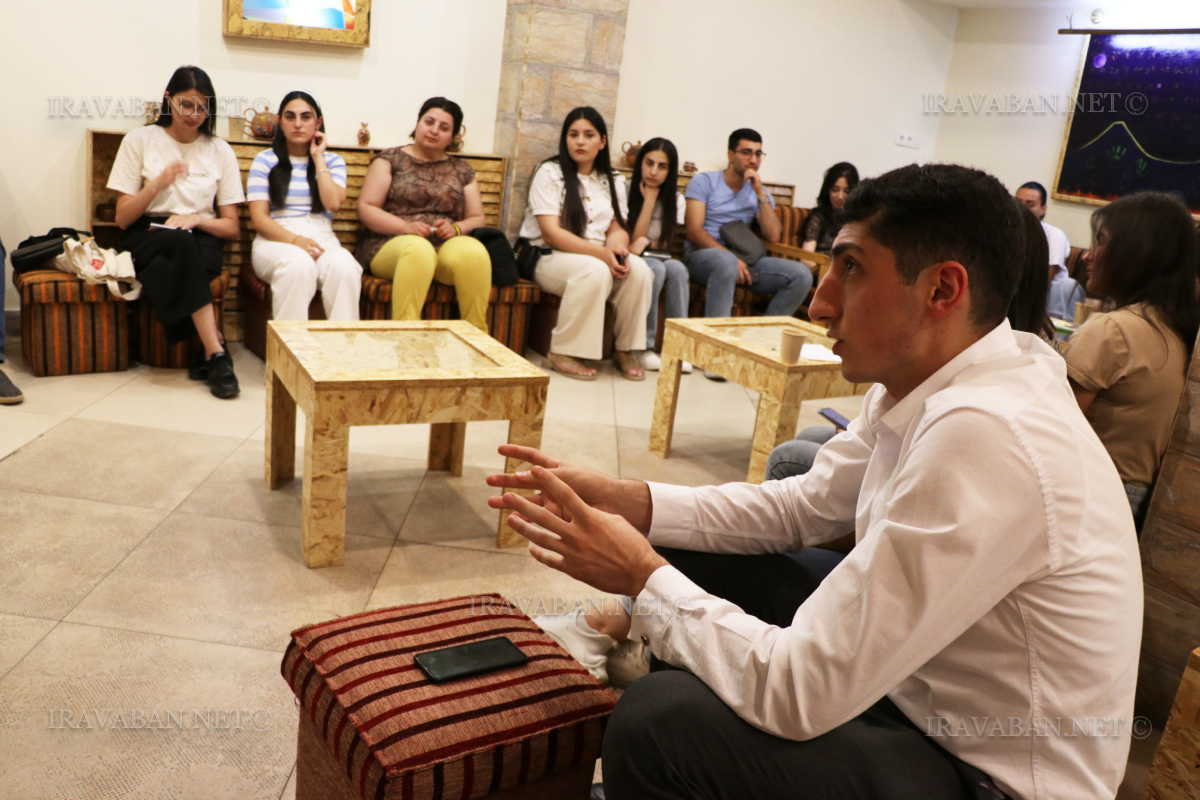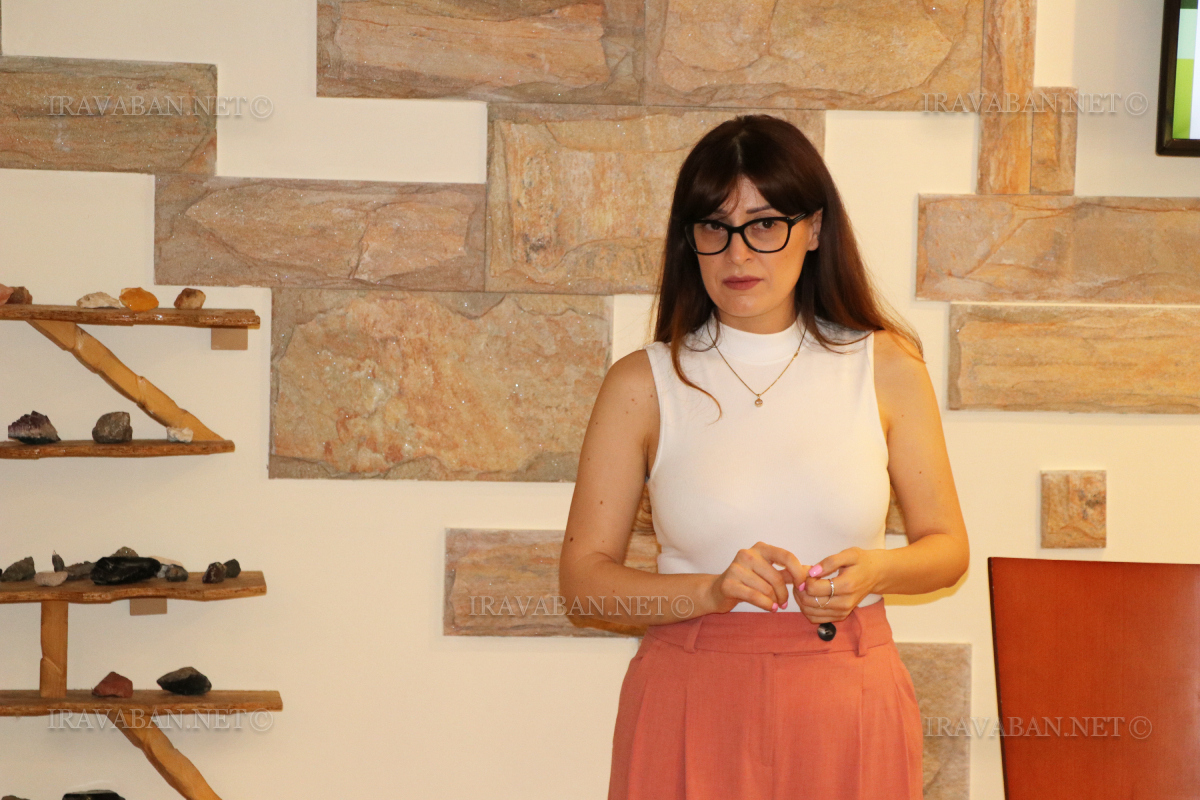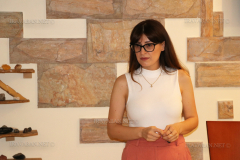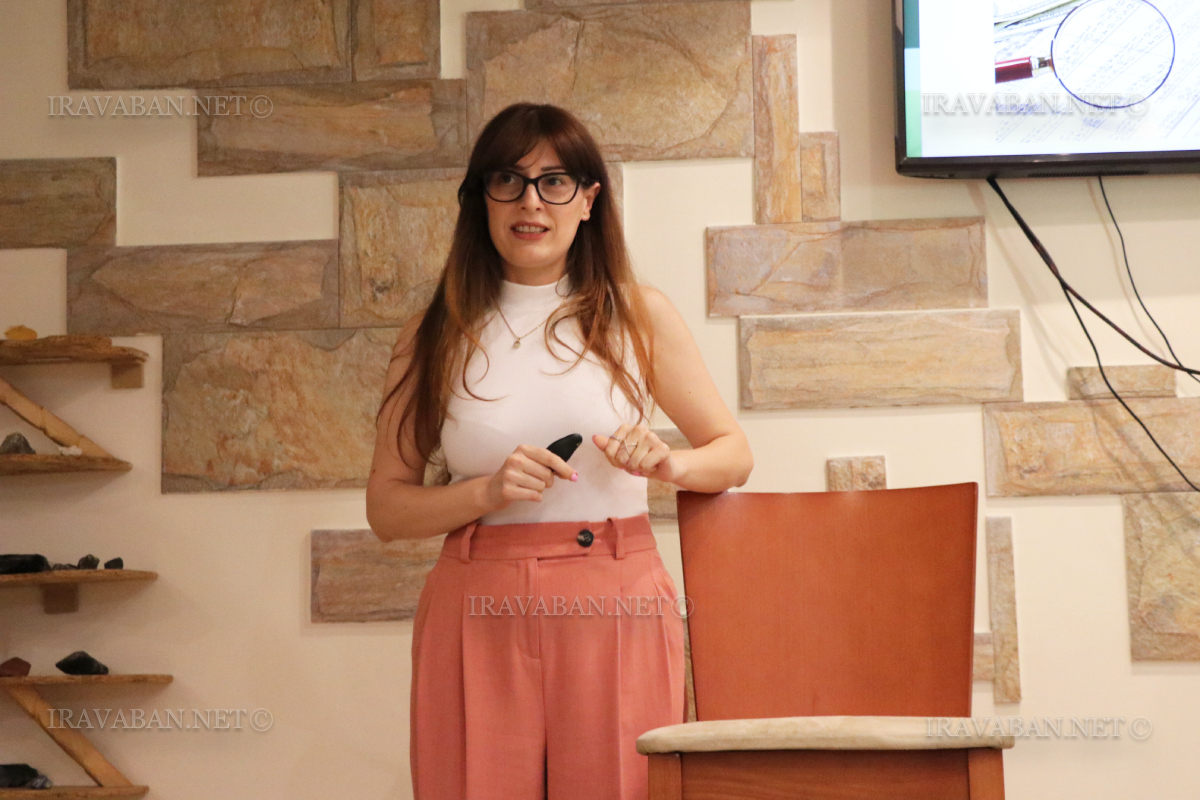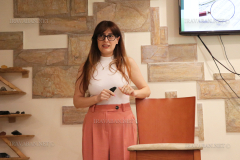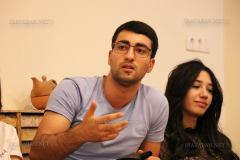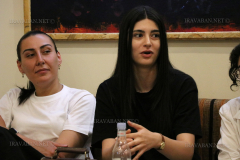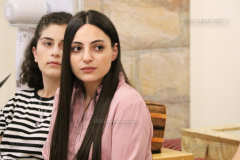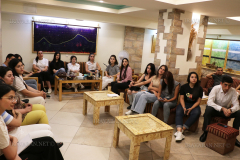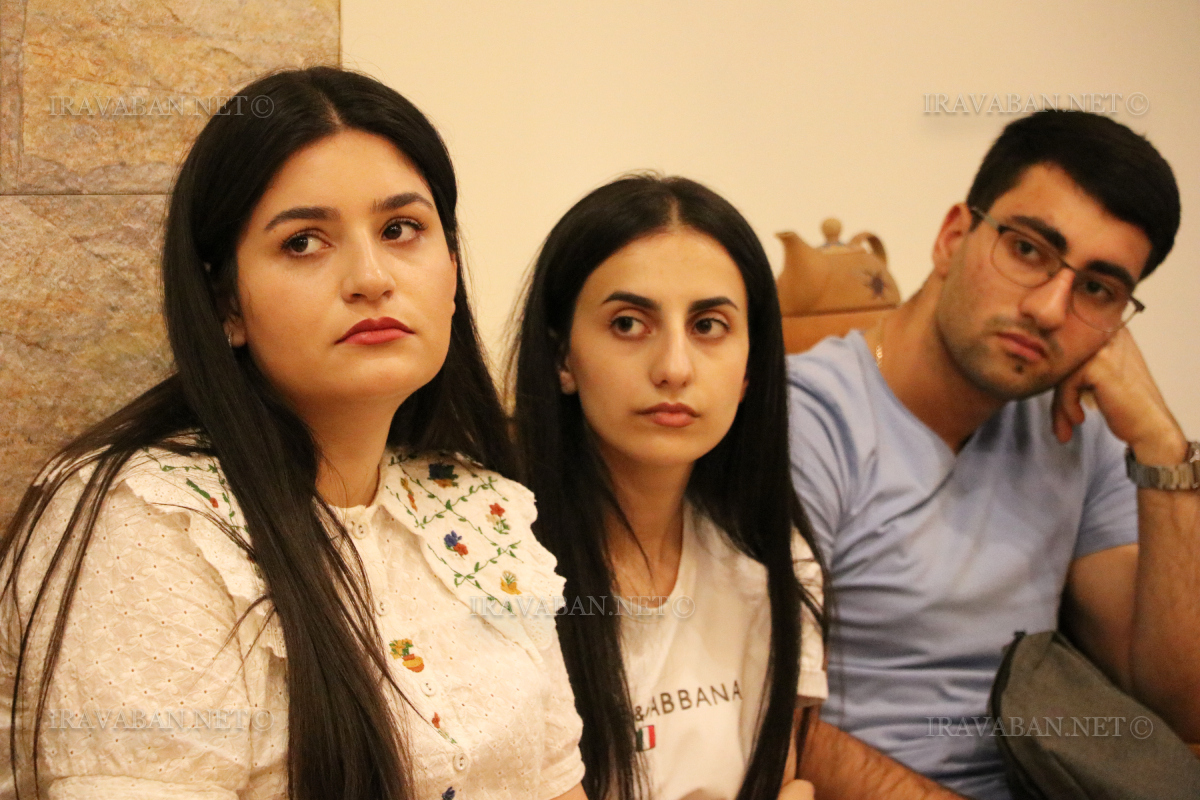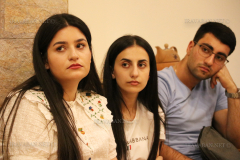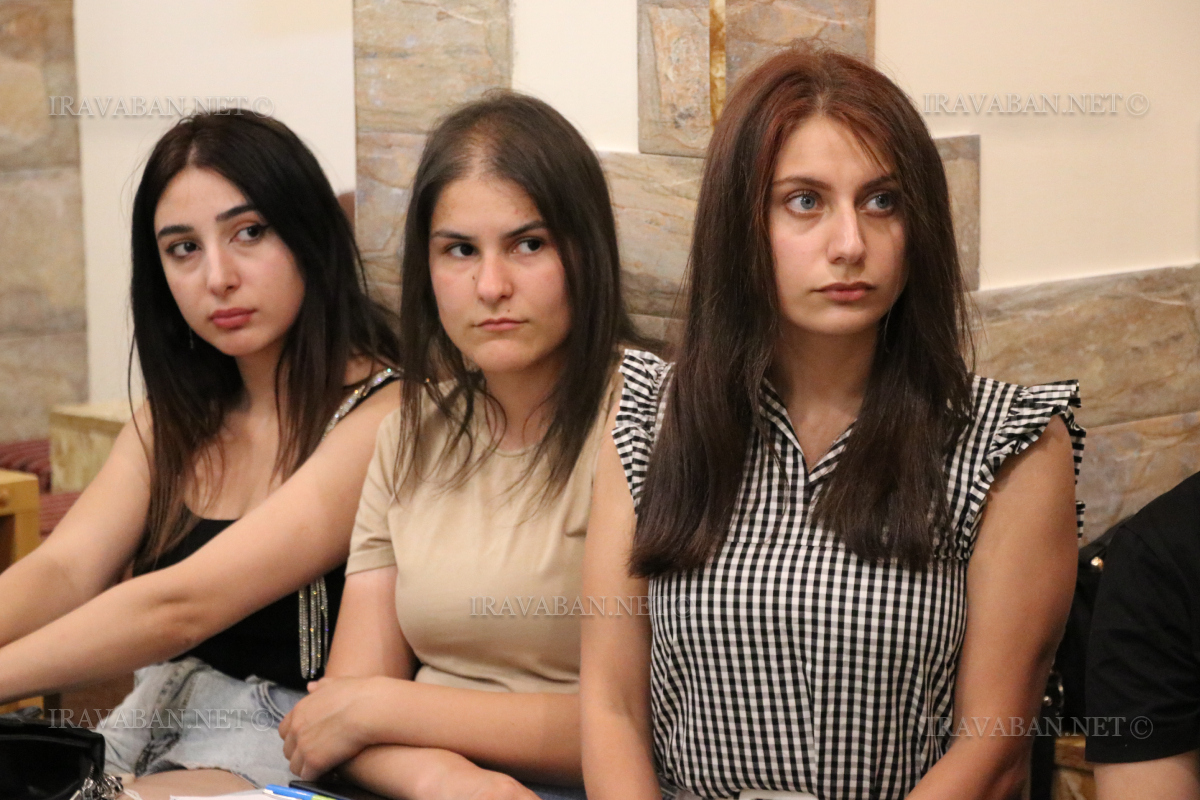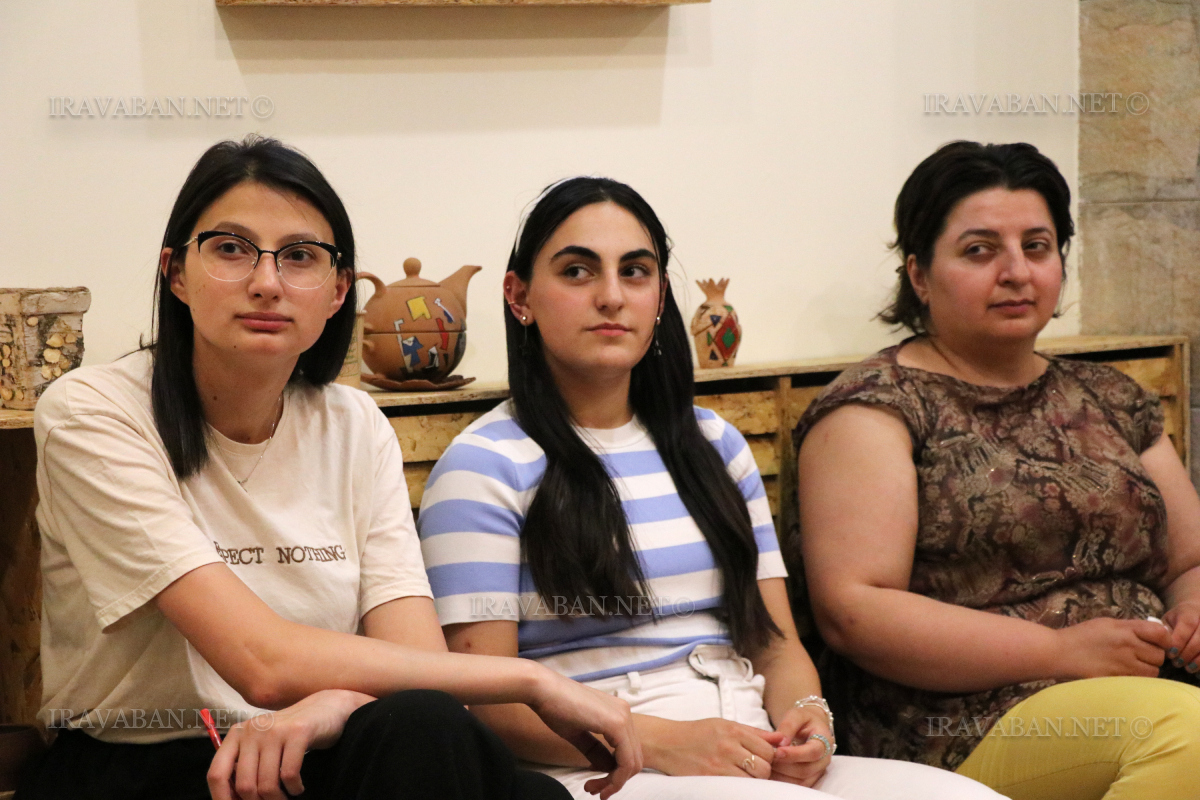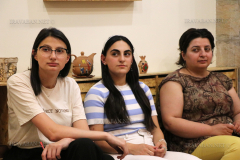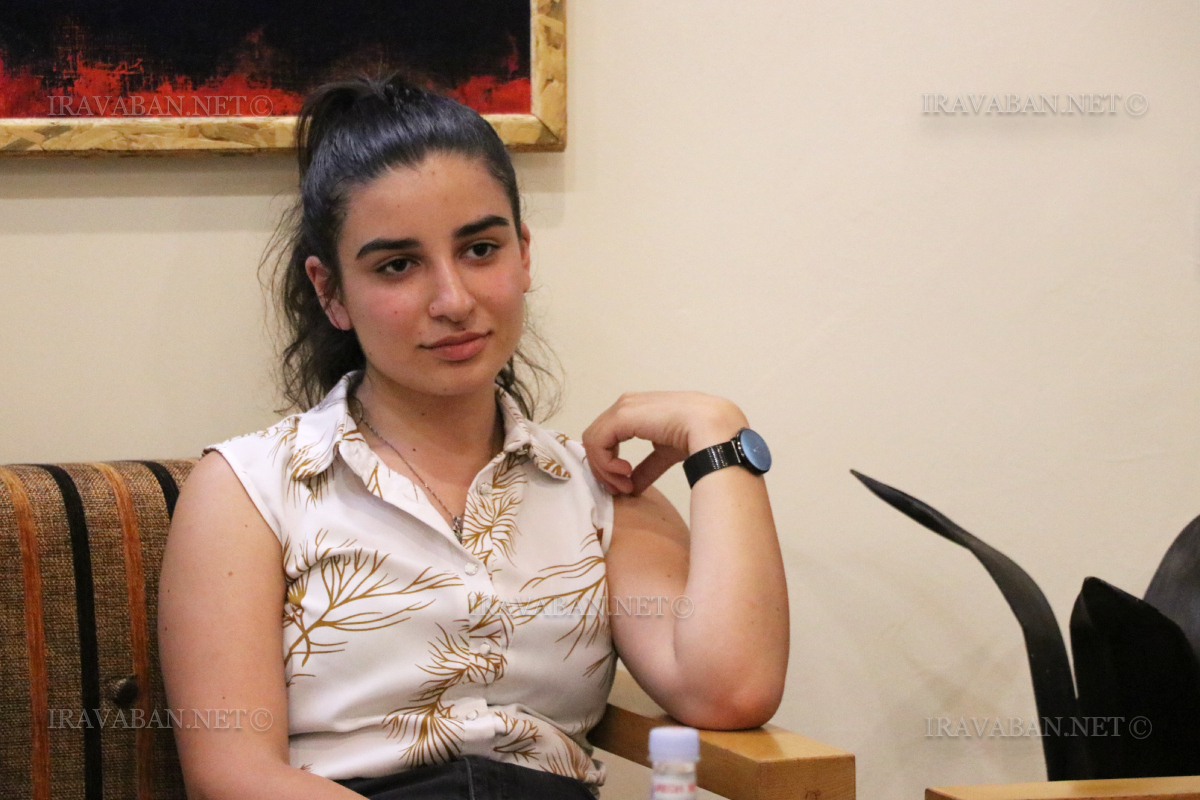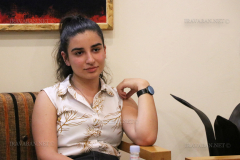
On 13 July, the students of the 9th stream of the Anti-Corruption School for Young Leaders, the 1st anti-corruption professional educational initiative operating in the Republic of Armenia, within the framework of the master classes and practical skills development phase of the 9th stream of the school got acquainted with the institute of confiscation of property of illicit origin, the developing legal practice and existing problems.
Anti-Corruption Expert of the CSOs Anti-Corruption Coalition of Armenia, Advocate Suzanna Soghomonyan referred to the proceedings initiated in the CC regarding the law, as well as the opinion given by the Venice Commission regarding it.
The students of the school were interested in the mechanisms of confiscation of property of illicit origin, and its realization. Suzanna Soghomonyan presented the grounds on which such proceedings can be initiated.
The grounds for starting a study are:
1) there is a legally effective indictment, which confirms the commission of any of the crimes provided for by the PIO Law, and based on the materials of the given criminal case, there are sufficient grounds to suspect that the convicted person or a person related to him owns property of illicit origin, which was not forfeited by judgment.
2) a criminal prosecution has been initiated against a person for the commission of any of the crimes provided for by the Law on Property of Illicit Origin, and there are sufficient grounds to suspect that the accused or a person related to him owns a Property of Illicit Origin;
3) there are sufficient grounds to suspect that the relevant person or a person affiliated with him/her owns Property of Illicit Origin, but in connection with the commission of any of the crimes provided for by Law on Property of Illicit Origin, criminal prosecution is impossible on one of the following grounds:
a. a person is subject to amnesty from criminal liability,
b. a person is subject to exemption from criminal liability by virtue of the provisions of the general or special part of the Criminal Code of the Republic of Armenia,
c. the person died
d. at the time of committing the act, the person has not reached the age of criminal responsibility.
4) there are sufficient grounds to suspect that the relevant person or a person related to him/her owns the Property of Illicit Origin , but the period of criminal prosecution initiated in connection with the commission of any of the crimes provided for by Law on Property of Illicit Origin has been suspended pursuant to Article 193 of the RA Criminal Procedure Code, by any of the grounds provided for in parts 2 or 3.
5) Based on the data found as a result of the operative-investigative measures established by the Law “On Operative-Investigative Activities”, there are sufficient grounds to suspect that the official or a person related to him owns property of illicit origin;
6) According to the data obtained in the framework of the confiscation proceedings of the Property of Illicit Origin, there are sufficient grounds to suspect that the official or a person related to him owns property of illicit origin.
“I would also like to point out that an investigation can be started in relation to the same property, if there is a basis different from the previous investigation, which was not known and could not be known to the competent authority at the time of starting the previous investigation. The competent body may restart the completed study in case of new or newly appeared circumstances established by the Criminal Procedure Code. It is important to remember that the law is built on the legal regulation, according to which the claim for confiscation of the originating property is directed against the property, not the person,” the Anti-Corruption Expert noted.
In addition, Suzanna Soghomonyan mentioned that the body collects materials related to a number of issues in order to find out the existence of the necessary grounds for the submission of the claim for confiscation of illicit property. They are:
1) the property belonging to the person, its location, sources of acquisition;
2) the market value of the property at the moment of its acquisition and at the time of the study;
3) transformation of the property into other property and the proceeds from the use of the property;
4) known incomes and expenses of the acquirer of the property, including average monthly living expenses;
5) transactions concluded in relation to property.
6) Encumbrance of the property with the rights of other persons.
“The period before the decision to start the study cannot be longer than ten years before the decision to start the study. In case of suspicion and proof of illicit origin of the property, a new period may be established, which may include only the period after 21 September, 1991,” the Anti-Corruption Expert said and added that the investigation may last a maximum for 3 years.
The students of the school asked the speaker a number of questions, mainly about assets located in offshore zones and options for their return.

